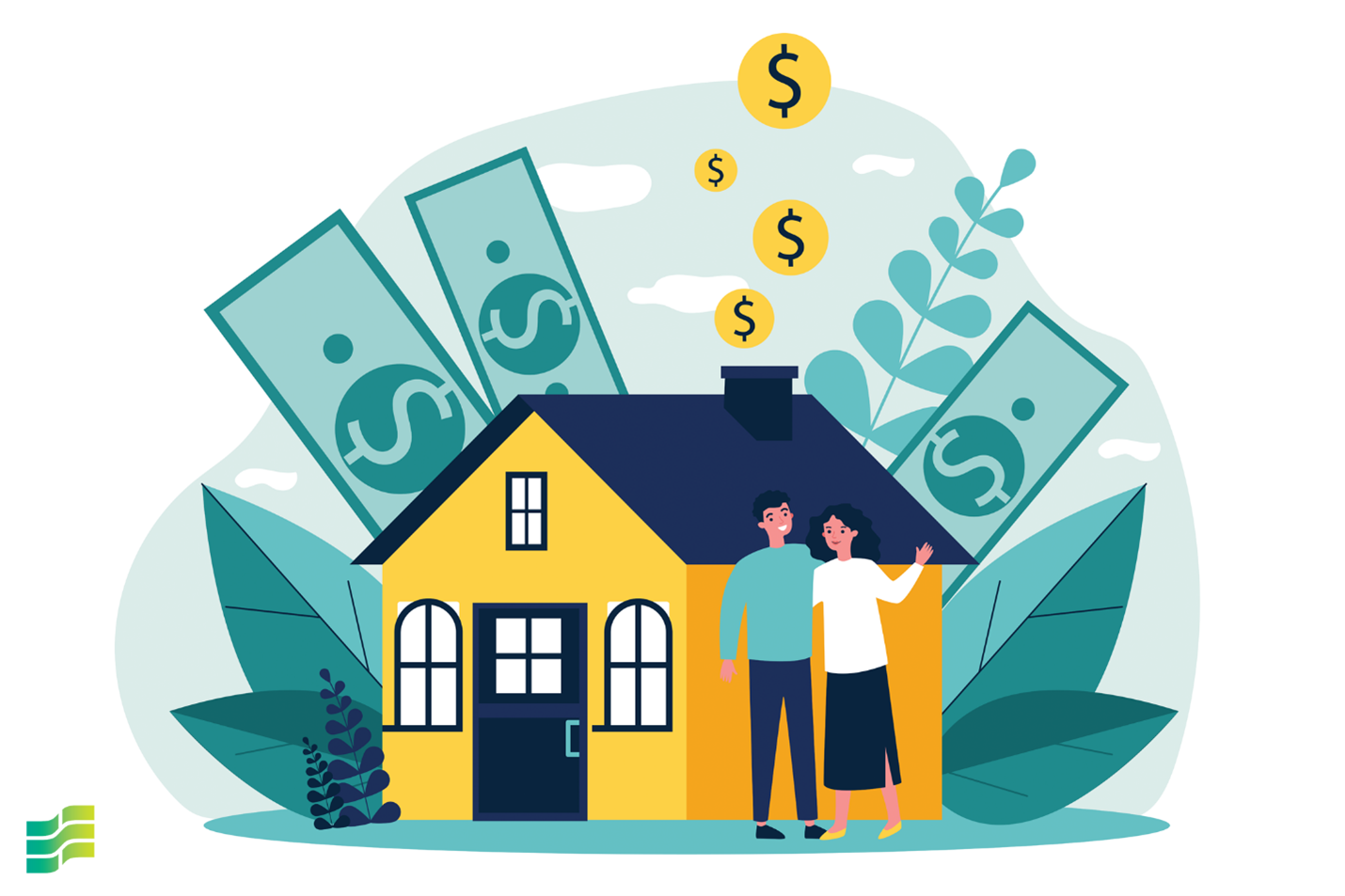Will Getting a Small Business Loan Affect Your Mortgage Approval

 Peter Park
Sep 12, 2023
Peter Park
Sep 12, 2023
SVP, National Sales Manager-Mortgage Banking
For most homeowners, selecting a house constitutes the most significant financial commitment they will undertake. While the allure of choosing a future property based on its layout, wall colors, and an array of features is strong, don’t forget to also assess it as an investment.
The home-buying choices you make today could result in a difference of hundreds of thousands of dollars when you sell, whether that's five years or a decade down the line.
Figuring out how much your house will be worth 10 years from now is not an exact science. As the 2020 pandemic and consequential housing market explosiveness proved, there will always be unforeseen external forces that influence housing supply and demand. However, there are steps you can take to forecast your home’s worth, especially in comparison to other properties.

How future home value is calculated is Home value x (1 + Annual Rate) x years. However, finding an “annual rate” that directly reflects the upcoming 10 years is near impossible. Therefore, when conducting this calculation, approach it as a loose estimation at best.
So, how do you find the annual rate? While past years assumed that home value grew roughly 4-5% year-over-year, the events of the past few years have caused such numbers to soar to at least 20%. And, by looking at 2023 vs. 2022, home prices actually experienced a decrease in average value, further demonstrating the volatility.
Our best advice? Find the property appreciation rate for your home’s specific location when calculating your home’s worth 10 years from now. After all, as noted by Redfin, homes in New York saw a -4.1% decline YoY yet certain communities, such as Bronxville, NY, saw 63.9% growth.
Tools like Redfin let you view market data by zip code, city, state, etc. This not only lets you see how this year is performing compared to last year’s but also how home values are trending over time.
While these insights are valuable, don’t blindly assume that future years will see the gains (or losses) shown by past years. There are many factors that can cause local or national trends to slow or reverse.
Common sense highlights that the neighborhood itself can help or hurt a property’s value. Therefore, to get a better sense of what a home could be worth in 10 years, investigate what efforts the community is making to improve the surrounding area. Examples include:
Other indicators of your home’s perceived worth 10 years from now include crime data (and which direction it trends), public school ratings, and whether or not it's in a flood zone.
There are plenty of resources available online that tell you about the population trends of your area. If you see a steady trend of households increasing, you can bet that this trend will continue unless a major event interrupts the momentum. Conversely, if more people leave the community than join, you should expect your home’s appreciation to slow.
If you watched the news over the last few years, you no doubt heard stories of new home buyers overpaying for properties when confronted with shockingly limited supply. In turn, they may not see quite the same ROI when selling in 10 years as someone who bought their home for a price more on par with others in the neighborhood.
Therefore, when calculating your home’s worth 10 years from now, it’s important to not only factor in your house’s price but also those surrounding you.
Don’t forget to factor in your own future actions when calculating how much your house could be worth in 10 years. However, it’s not just about the amount of money you spend on the house, but also how you choose to spend it.
Considerations include:
To summarize, putting $50,000 into your home won’t guarantee it will be worth $50,000 more in 10 years. Strategically allocating the money and keeping your finger on the pulse of shifting consumer demands can go a long way to increasing your property’s value.
The decisions you make regarding your choice of house and financing can wield a profound influence over your daily savings and financial flexibility. After all, you have to factor in your mortgage payments, taxes, utilities, maintenance fees . . . the list goes on. To confidently navigate the rocky waters of purchasing a home, consider the below articles from Bank of Hope.
Getting a New Mortgage Before Selling a House - The transition of buying a new house while selling your previous home can be quite the financial juggling act. This article breaks down your various options and provides tips on how to make the progression from one mortgage to the next as smooth as possible.
Getting Loans for Rental Property Business - Homeowners aren’t the only ones wondering about a property’s worth 10 years from now. Those interested in purchasing investment properties can learn about different types of loans that may work for their financial goals and business model.
The “What”, “Why” and “Who” in the Cost of a Home Mortgage - New to acquiring a mortgage? This guide will get you started by explaining some of the basics.
Interested in getting started on financing a new home? The Bank of Hope team can answer all questions and walk you through the steps of getting a mortgage. To learn more about our services, visit our Mortgages pages.


